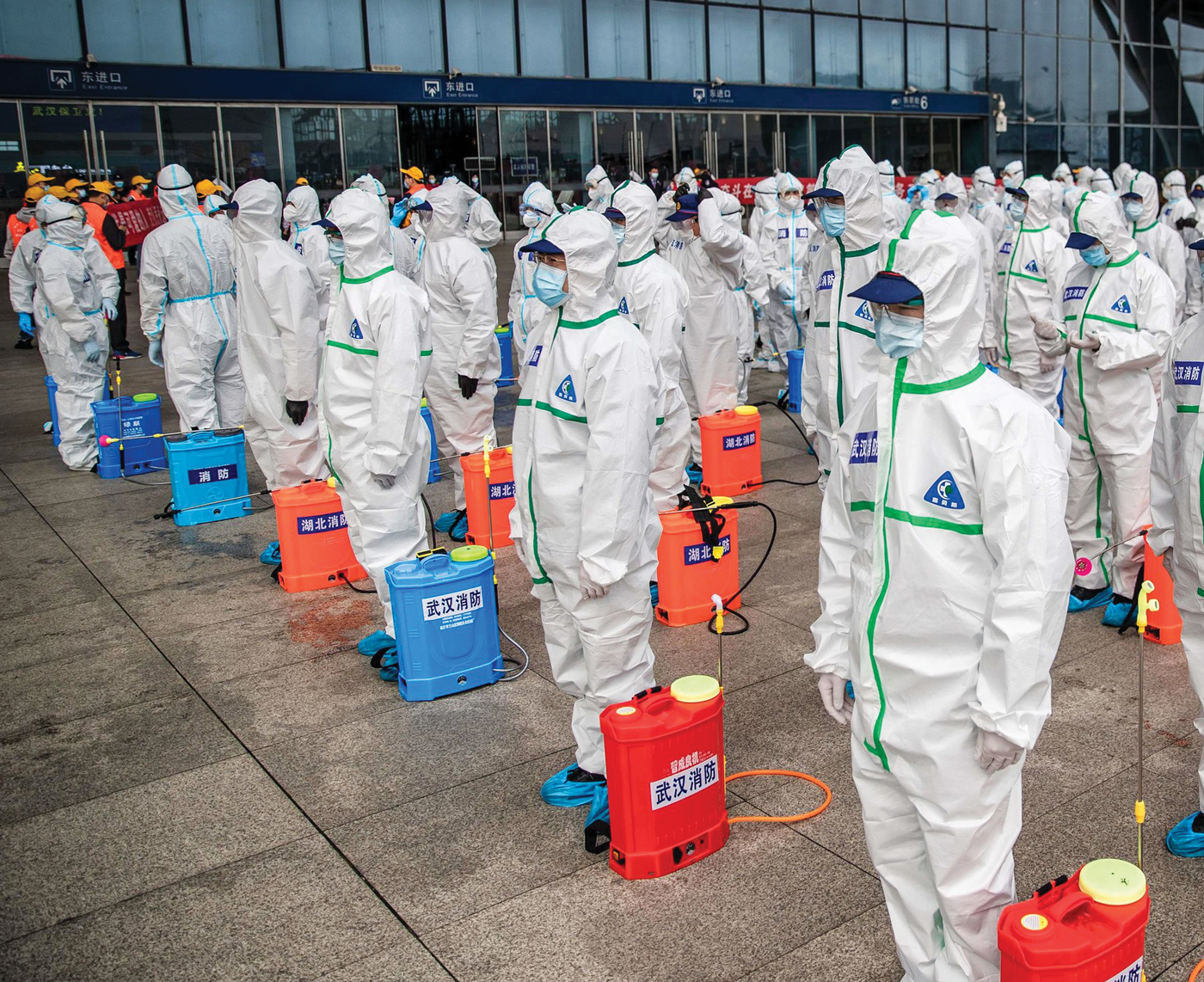Enough is enough!
Enough is enough!
We’re only in the third month of the year and I’m already starting to feel overwhelmed. Just when we thought that Covid was easing, Russia’s invasion of Ukraine happened. And now we appear to have gone full circle and back to where it all started … with massive Covid-related lockdowns in China.
The number of deaths in Ukraine depends on where you source your news – and whether you believe the Ukrainians, the Russians, or neither country. As I write this article, Ukrainian authorities have said more than 12 000 Russian soldiers have been killed while at least 1 300 of its soldiers have died. The Ukrainian State Emergency Service has also reported that more than 2 000 civilians have been killed since the invasion.
Russia’s story differs dramatically; for instance, it says 498 of its soldiers have been killed.
Honestly, no one knows the truth. However, there are certain facts that we do know. There has been widespread violence and death in Ukraine (just last week, MAN’s headquarters were bombed). Civilian casualties are certainly rising. Over three million people have already fled the country. And life in Ukraine has changed forever.
Of course, life in Russia has changed too – and not for the better. My heart breaks for a friend who sent me a WhatsApp recently (Vladimir Putin is reportedly considering banning WhatsApp, so maybe I won’t hear from her again).
“I am Russian, and I am not responsible for any discussion of Russian government. I am Russian but I didn’t choose this government. I am Russian and I don’t want war. I am Russian and I want peace and independence for Ukraine. I am Russian and I have already lost a lot. Shall we keep in mind not politicians, but the Russian citizens? They are bearing the brunt of war that the majority is against. And just imagine that economy of my country destroyed. Our money turned into nothing. I work a lot, I was never rich, but made it to live good. Now I can afford pretty nothing. I have old parents to support, and I dream to become a mother. And I’m scared and I’m destroyed,” she wrote (verbatim).
My friend – and millions of other Russians – will undoubtedly suffer as a result of the sanctions that have rightfully been imposed on Russia. So too will our industry; the Russian commercial vehicle market is massive. The allied markets are enormous too. Take the tyre market, for instance. As I have been penning this column, I’ve just received notification from Bridgestone that it is suspending manufacturing activities in, and exports to, Russia.
The company’s statement reads: “Over the last weeks, we have been deeply affected by the war in Ukraine and its impact on many innocent people including our own employees and partners. We condemn any form of violence and hope that peace can quickly be re-established. Our primary concern in this crisis is the safety of our employees and their families.
“Bridgestone has been carefully assessing the impact of this challenging situation. As a result, we decided to suspend our manufacturing activities in Russia, until further notice. The decision will take effect on March 18 after the necessary preparations. The company has also decided to freeze any new investments and suspend all exports to Russia with immediate effect.

“We continue to care for our more than 1 000 employees in our passenger tyre production plant in Ulyanovsk and our sales offices. Therefore, we will support our employees financially at this time.
“The last two weeks have transformed the world with more than two and half million people having already fled their homes. Many of our employees have participated in spontaneous volunteer activities to support the refugees from Ukraine. Bridgestone EMIA has made a €1 million donation to the Red Cross, in addition to the €2,5 million donated by Bridgestone Corporation to the Office of the United Nations High Commissioner for Refugees UNHCR, and we will continue to evaluate how we can help alleviate the humanitarian crisis.”
I salute the company for this courageous – and extremely costly – move. Those donations will probably pale into financial insignificance when it comes to the lost revenue in Russia (the market in that country is expected to surpass 90 million tyres by 2025). Yes, the costs of the war in terms of human lives are far, far greater than any financial losses. But one also needs to be practical; for any company, turnover is important – and sadly the economic consequences of the war will find their way to all corners of the globe – including South Africa. We’ve already seen the disastrous consequences for equity markets …
Now, as I sit at my desk and ponder the implications of the war in Ukraine, another scary phenomenon is unfolding. I’m referring to the worst-ever Covid outbreak in China, which – in keeping with the country’s controversial Covid Zero strategy – has led to lockdowns in Shenzhen, Zhejiang, Shanghai, Jilin, Suzhou, Guangzhou, and Beijing (19 provinces as of two days ago, probably more to come in a few days).
The escalating number of infections could, of course, result in many deaths – which would be tragic indeed. Like the Russian invasion of Ukraine, the scenario is also set to impact the transport and logistics industry (and, of course, many other sectors of industry too).
For instance, Johannes Schlingmeier, co-founder and CEO of Container xChange, has warned that, with the announcement of these nationwide lockdowns, the supply chain must prepare for further turmoil in the coming months, and an impeded flow of container movement – because the lockdowns will heavily restrict container movement at ports.
“Freight rates and container prices were already at a record high even before the invasion started, and what happened immediately due to the war is that the Russian ports were not being called on by the national shipping lines anymore, the Black Sea was somehow closed, and the Asia European railway was hit hard by this. The immediate impact of this on the overall supply chain has not started to show. We see on the other side, the container prices at record highs, containers piling up, and a massive shortage as well. This is a result of many more other disruptions over the past two years since the pandemic started,” says Schlingmeier.
“China’s lockdowns will be nothing less than a major shockwave to an already crippled supply chain. Lockdowns in China will further reduce capacity and cause a surge in already inflated shipping prices. The shockwaves will be felt almost everywhere in the world,” he warns.
I’m probably the most positive person on the planet. But this cacophony of endless bad news is really starting to get to me now. Yes, I know that – especially within the transport industry – we’re made of pretty strong stuff (it’s one of many reasons I love my job). We’re tenacious! But goodness gracious me, enough is enough!
Published by
Charleen Clarke
focusmagsa




